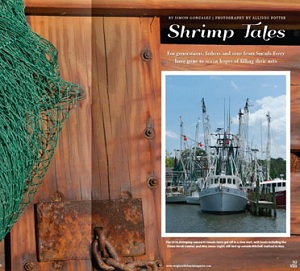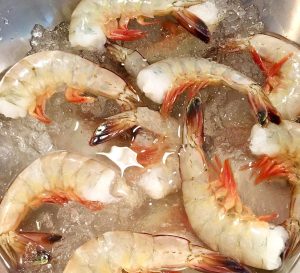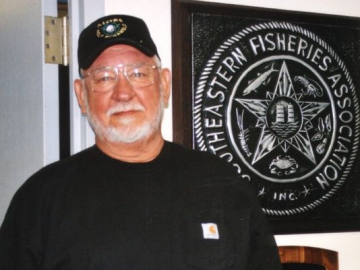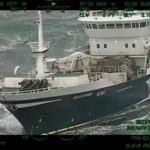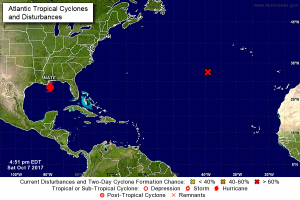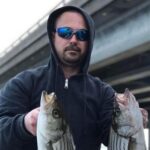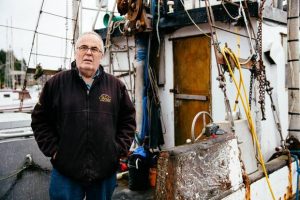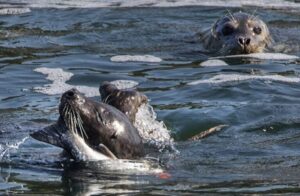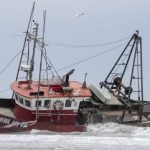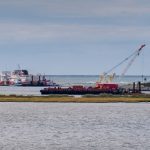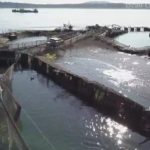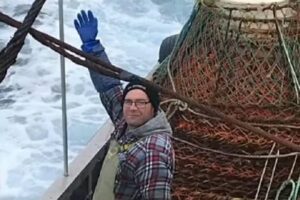Category Archives: South Atlantic

Mount Pleasant builder has background to save Shem Creek shrimp dock
Brett Elrod was 11 when he took his first job at the Shem Creek shrimp docks, shoveling ice onto a conveyor belt to move to the boats. That meant keeping up with the moving belt.,, Elrod’s situation now isn’t too far removed. The man who holds the fate of the creek’s Wando shrimp dock doesn’t want it all in his hands. He wants “everybody to pitch in together,” he said, to remake the place.,, “If everybody puts in their two cents and their ideas, I think they could have the whole thing for shrimping,” he said. >click to read<20:16
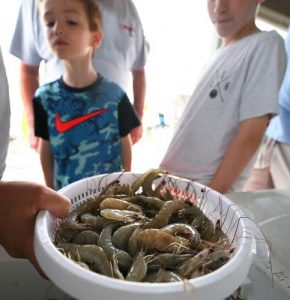
Will South Carolina shrimp season delay pay off with big crop this fall?
The first of the fall white shrimp are coming in — and they’re coming in surprisingly big. Shrimpers and customers are edgily anticipating these next few months as they await the bounty harvest that makes or breaks a season. But whether big shrimp this early is a good sign is anybody’s guess after this year’s opening was delayed and the summer catch was spotty. “Who knows? This has been such a wacky season,” said Rutledge Leland of Carolina Seafoods in McClellanville. Big fall shrimp this early could mean there just aren’t that many of them out there, he said. But Shem Creek shrimper Tommy Edwards thinks the early shrimp are promising after the relentless July storms. Rains promote algae and zooplankton, which shrimp feed on. >click to read<19:47
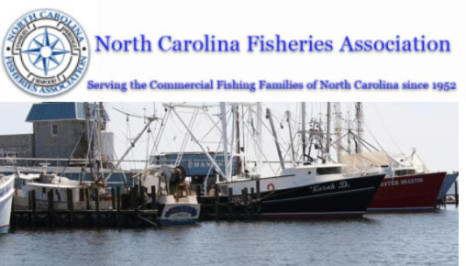
North Carolina Fisheries Association Weekly Update for Aug 3, 2018
>Click here to read the Weekly Update<, to read all the updates >Click here<, for older updates listed as NCFA >click here<13:34
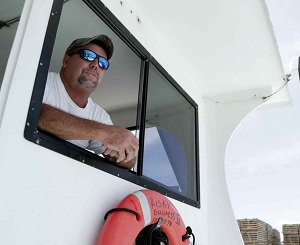
Florida lobster fishermen testy on trade
Just as they prepare for a crucial harvest in the wake of Hurricane Irma, lobster fishermen in the Florida Keys fear a trade war with China could undermine storm recovery in the island chain. Florida’s nearly eight-month commercial spiny lobster fishing season opens Monday. Keys fishermen had hoped the harvest would help them recoup losses from last September’s hurricane, which made landfall in the Keys with 130 mph winds.,, “Hopefully the tariffs will get figured out because you can’t run your boat and not make money, especially after a hurricane year when you’ve lost so much,” Piton said in a recent interview outside his Key Largo home, where he docks his boat, “Risky Business II.” >click to read<12:49
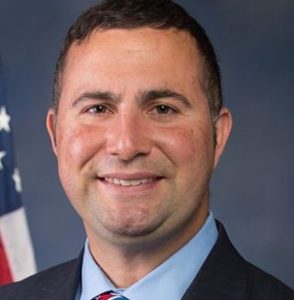
U.S. Rep Darren Soto’s Billfish Conservation Act cuts consumer access to sustainable fresh seafood
The Western Pacific Regional Fishery Management Council is disappointed that America’s seafood consumers may soon be deprived of sustainably harvested domestic marlin products should President Trump sign legislation to prohibit interstate commerce of billfish (not including swordfish) landed in Hawaii, American Samoa, Guam and the Commonwealth of the Northern Mariana Islands. The bill, introduced by U.S. Rep. Darren Soto ’s (D-Fla.), passed the House on June 26 and the Senate on July 30 and is now headed to the president. “It is upsetting, in this era of tackling illegal, unreported and unregulated (IUU) fishing and the $12 billion US seafood trade deficit, that highly monitored US Pacific Island fishing and seafood communities may suffer hardship should this legislation become law,” notes Kitty M. Simonds, executive director of the Western Pacific Regional Fishery Management Council. >click to read<10:34
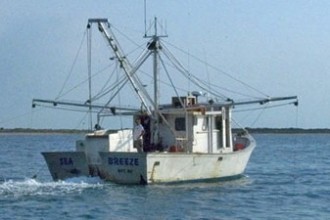
Nort Carolina: New shrimping rules slowly migrate through sea of bureaucracy
Almost two years after it surfaced, a proposal to radically curtail commercial shrimping is crawling through the state’s rule-making process. The North Carolina Wildlife Federation petitioned the Marine Fisheries Commission for the new rules in November 2016, and after modifications, the panel accepted the request on Feb. 16, 2017. Several changes would cripple the shrimp trawling industry, critics say, and would raise the size limit on spot and croaker so high that they would effectively eliminate both fisheries for recreational and commercial fishermen. But the rule-making part isn’t on the horizon yet. >click to read<09:30
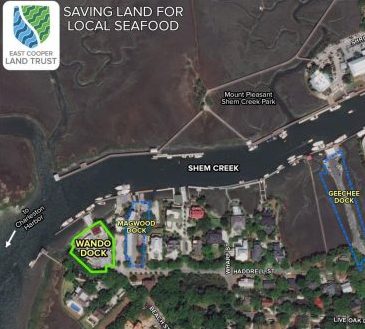
Mount Pleasant developer to buy one of Shem Creek’s last shrimping docks
One of the last shrimp boat docks on Shem Creek might be saved. Or it might be developed out from underneath the boats, as some fear. Builder and Mount Pleasant resident Brett Elrod has stepped in to buy the Wando dock at the mouth of Shem Creek. Elrod said he plans to work with the community developing the property while maintaining a dock and facilities for shrimp boats.,, But the East Cooper Land Trust, which had been trying to raise money to buy the property, is not convinced and is not partnering with Elrod in the effort. Director Catherine Main said the trust is skeptically optimistic. >click to read<15:16
Save Shem Creek Corp. won’t fundraise until Land Trust offer accepted – >click to read<
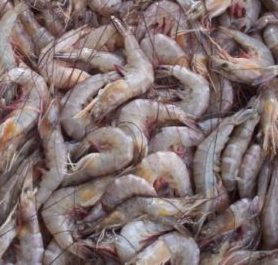
Lawmakers urge more FDA inspections of imported seafood, win approval
An effort to increase the amount of imported seafood the U.S. inspects for health issues has crossed a hurdle in the Senate. Louisiana’s two Republican senators, John Kennedy and Bill Cassidy, won approval of a measure that would add $3.1 million the FDA’s budget for such testing. Shrimpers in Terrebonne and Lafourche, joined by their peers in other states, have pushed for the measure,, The group represents shrimp fishermen and processors in Louisiana, Alabama, Florida, Georgia, Mississippi, North Carolina, South Carolina and Texas. Video >click to read<17:48

Council for Sustainable Fishing – SAFMC Efforts to decrease the number of charter and headboats
Charter and headboat operators are now living one of these horror movies as the South Atlantic Fishery Management Council once again moves forward with limiting the number of for-hire snapper-grouper permits, this time through Snapper-Grouper Amendment 47. And now the SAFMC is not just talking about limiting the number of charter and headboats, they are now talking about decreasing the number. This has nothing to do with fishery sustainability. A limited-entry fishery is the first step toward a catch share fishery, one that will set up a “stock market” for permits. >click to read, comment<14:21
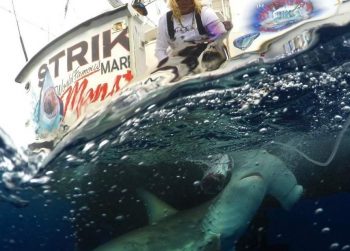
Highly Regulated: U.S. protects alpha predators, but its most famous shark hunter isn’t out of business yet.
Better known as Mark the Shark, Quartiano might be America’s most famous seafaring hunter. He’s operated his charter business since 1976, hooking and killing, by his estimate, at least 50,000 sharks. Clients as varied as Clint Eastwood and the Jacksonville Jaguars cheerleaders call him if they want a set of jaws, a trophy catch to mount, or just an adrenaline-packed excursion. Some 120,000 people follow his exploits on Instagram. Quartiano, 64, says he’d like nothing better than to hand the whole thing over to his son, Maverick, now 12, when he’s ready to retire. But Quartiano’s way of life might be as threatened as the creatures he’s famous for catching. >click to read<17:54
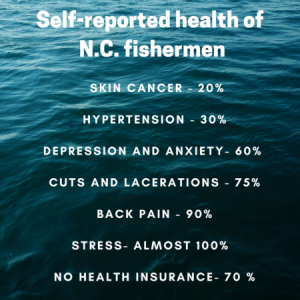
Many are injured on the job, most lack health insurance. Meet the cowboys of the sea.
North Carolina fishermen work long hours, and many fish alone. When harvesting shrimp, they can stay out on the water four to five days at a time. Broken bones and lacerations are common. Fishermen are disproportionately affected by skin cancer. The majority complain of back pain. Other lose limbs, even as many don’t have health insurance. Some die by drowning. One hurricane or unexpected cold front can move their crop. The stakes are high. But they don’t think about these things much and they didn’t see why a health care reporter was interested in talking to them, even as they admitted health care concerns have changed how many approached their fishing careers. For Glenn Skinner, 45, fishing is freedom. It’s in his blood. He’s a fourth generation fisherman from Carteret County and has been on fishing boats since he was 4 years old. >click to read<09:04
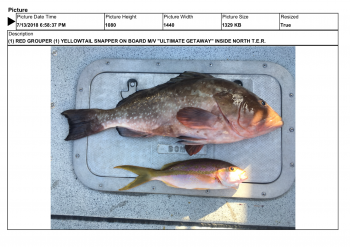
Environmental Citations Issued For Boat Captain During NOAA Environmental Research Cruise
The captain of a charter boat carrying government scientists on an environmental research cruise near the Keys has been cited for violating environmental regulations. The Ultimate Getaway is a 100-foot charter boat that takes people to the remote Tortugas, west of Key West, for diving and spearfishing trips. This month, it was chartered by the federal government for the Coral Reef Monitoring Program research cruise, which surveys reef and fish in Florida every other year. The FWC patrol saw the Ultimate Getaway at anchor inside the reserve. When they came alongside, they saw fishing poles and gear on the vessel’s stern, according to the FWC report. >click to read<11:19
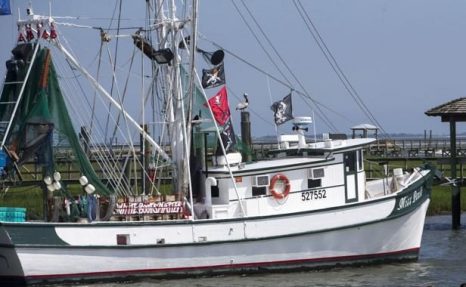
Protect Shem Creek’s shrimpers
Without its shrimp boat fleet, Shem Creek in Mount Pleasant would be a different kind of place. But the number of boats has been dwindling for decades, and the loss of the dock that formerly housed the Wando Shrimp Co. could be a tipping point. The Wando dock is up for sale. And unless a nonprofit buyer such as the East Cooper Land Trust or even the town of Mount Pleasant is able to scoop up the property, it could be redeveloped in a way that would push out a few more of the remaining shrimpers in the creek. That would be a shame. Shem Creek and the nearby Old Village form the unofficial heart of Mount Pleasant. >click to read<09:46

Sam Parisi: HR-200 was passed in the House and will now move on to the Senate. Push Your Senators!
There has been a lot of those for and against the bill, and after reading the forty-nine pages of the bill and trying to consume it, I have come to the conclusion that over all it is a move in the right direction. The enactment of the 200 mile limit was needed because of foreign fisherman from other countries were destroying our Fisheries and our government at that time had no jurisdiction, Japanese and Russian Factory Ships were invading our waters using small mesh netting scooping up small fish like haddock, cod, flounder, and other bottom dwelling species. I say this because while fishing for whiting off the Canyons near Cape Cod I saw in front of me and fishing along side of me, those factory ships. >click to read<17:48
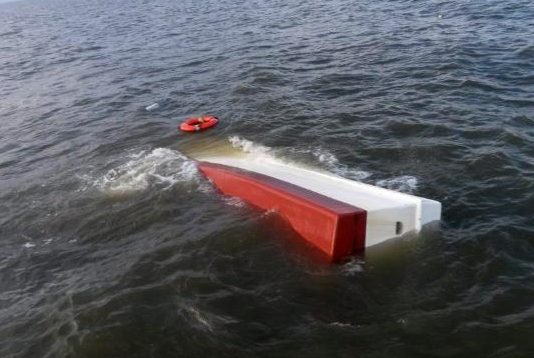
Coast Guard rescues 2 survivors clinging to debris in Pamlico Sound, NC
Two men were rescued by a Coast Guard helicopter crew Wednesday morning, after their fishing boat capsized Tuesday near Hog Island.,, The wife of a fishermen called for help Tuesday night, on behalf of her husband, reporting the generator on the men’s boat was not working properly and the men were trying to find safety near shore in the deteriorating weather. They had departed Ocracoke Tuesday morning and were planning to shrimp in Pamlico Sound before unloading their catch in Engelhard. >click to read<07:54
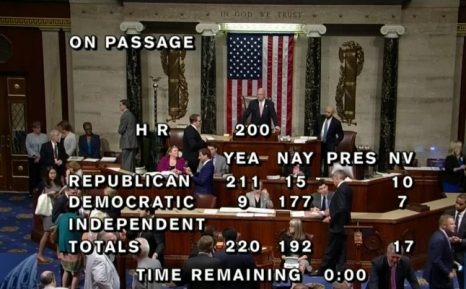
Opinion: Fisheries act is a chance to build trust
There’s a little something for everyone to hate in the House’s proposed renewal of the Magnuson-Stevens Act. Commercial fishermen feel it gives too much to recreational fishermen and environmentalists. Recreational fishermen say it goes too easy on their commercial counterparts, and the environmental lobby says the measure, which passed the House last week along largely partisan lines, will undo years of progress in restoring fish stocks. We are left with what we have had for decades — a pitched battle among competing interests, with no end in sight. Congress must do better to help guarantee that the science behind management decisions is sound and easily understandable. >click to read<19:25

Two rescued after shrimp boat capsizes during storm in Pamlico Sound
The two-man crew of a small shrimp boat from Carteret County were rescued by the Coast Guard early Wednesday after their craft capsized in the Pamlico Sound during a thunderstorm. The Mad Lady II from Marshallberg was reported overdue Tuesday evening, after reportedly running into generator problems while trying to reach Englehard.,, A Coast Guard helicopter from Air Station Elizabeth City located the Mad Lady II capsized off Hog Island around 6:20 a.m., and a Good Samaritan also reported finding debris nearby, Kendrick said. At 7:32 a.m., the captain and mate were found by the helicopter crew clinging to debris about seven miles from where the boat went down. >click to read<10:26

The cost of offshore wind power: worse than we thought
A few days ago, the BBC’s Roger Harrabin mentioned a new suggestion that instead of cutting up redundant oil rigs, we should simply sink them to the bottom of the sea, where they would become artificial reefs that would encourage a flourishing of marine flora and fauna. Observant readers of his Twitter feed were of course quick to point out that this was exactly what BP had proposed for their Brent Spar platform nearly twenty years ago. At the time there was an outpouring from environmentalists, who accused the oil giant of deliberately polluting the seas.,, a recently published a paper on the potential decommissioning costs of all those offshore wind turbines that they are so keen on installing.,, costs for 34 turbines could reach £100 million ($131,654,735.40) >click to read<09:44

The MSA and Don Young’s partisan dilemma
“We must remain committed to the bipartisan, bicameral tradition of fisheries management,” Rep. Don Young wrote last Sunday, “and my legislation accomplishes just that.” He was referring to the reauthorization of Magnuson-Stevens Act. But when the House passed it on Wednesday, only nine Democrats voted in favor of it. Which explains why, in the same opinion piece, Young complained about “the hyper-partisan mentality” his “Democratic colleagues subscribe to.” Like the breakup of a marriage, there are two sides to this story. The reason why Young is arguing from both might be that he was caught in the middle. >click to read<09:00
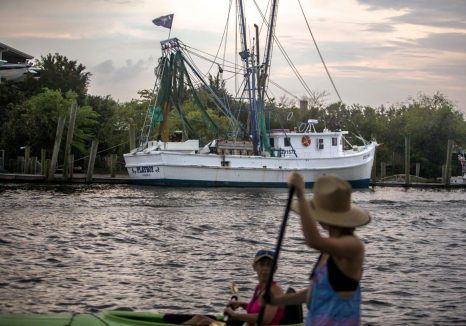
Shem Creek’s Wando dock up for sale, one of last for area shrimp boats
One of Shem Creek’s last remaining shrimp boat docks is quietly up for sale. The loss of the Wando dock could be the tipping point for the vanishing fleet in the creek made famous by its hanging nets. The Wando dock is one of the last three commercial docks mooring shrimp boats that are a picturesque hallmark of the creek. Five boats now tie up there — about half the fleet that once existed. In previous years, it was common to see shrimp boats tied off three or more abreast and their catch sold from the docks. Losing it could mean those boats would have nowhere else to tie off, much less sell their shrimp. It also could put more development pressure on the owners of the other two. >click to read<19:32
House of Representatives – Debate and Passage of HR-200
July 11, 2018 House Session The House meets with debate scheduled on a fisheries management bill sponsored by Rep. Don Young of Alaska. >click to watch<20:52
House votes to overhaul fishery management law – “I’m proud to say that my bill protects our commercial and recreational fisheries’ interests and allow councils to do their jobs in a more streamlined and effective manner,” Rep. Don Young (R-Alaska), the bill’s sponsor, said on the House floor. >click to read<21:41
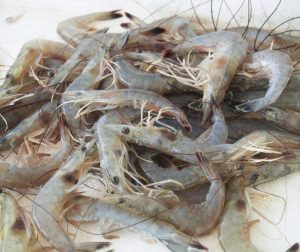
UGA researchers dive into a sea of questions
Captain Wynn Gale knew it was bad. He’d been commercial fishing off the coast of Darien, about 50 miles south of Savannah, since he was 12, and his decades of shrimping told him the industry was in trouble. Again..,,, But this time, off the coast of Georgia in the 1990s, there weren’t as many shrimp to catch, and the ones Gale and other commercial fishermen were pouring onto the decks of their boats had something wrong with them. They weren’t flopping around like normal; in fact, they barely moved. And their gills were black, a stark contrast to the milky clear color of Georgia’s famously sweet white shrimp. >click to read<09:43
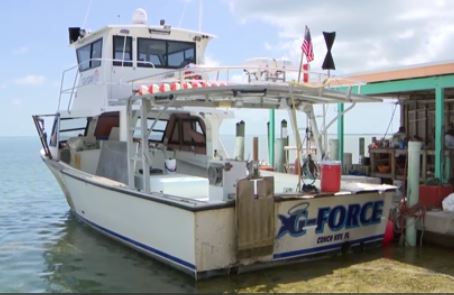
Florida Keys fishermen talk impact of President Trump’s tariffs
Jeff Cramer is a longtime Keys commercial fisherman who operates a fish house in Marathon. He buys lobster from as many as 20 different boat captains and then sells them all to his Chinese buyer. “I’m just hoping our president can resolve this little trade war he’s got going with Europe and China. A lot of us voted for him and maybe this will work out in the long run, but for the short term, it’s really going to devastate us after we had that hurricane last year. A lot of guys are living off the SBA loans that they have to start paying back in a little bit,” Cramer said. “Let’s see what happens. He got Rocket Man to back down, let’s see if he can get the Chinese president to back down,” Cramer added. Gary Nichols also voted for Trump and is standing by him. >click to read<11:44
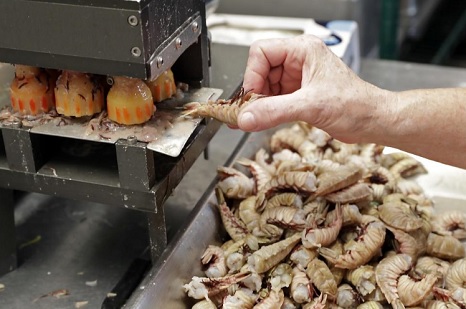
From trash to treat: Rock shrimp’s rise to fame in Florida
After trawling the Atlantic Ocean for days, Rodney Thompson returned to his Florida home and dropped buckets of rock shrimp in the middle of the kitchen. He ordered his four school-age children to stop playing and figure out a way to cook them. Rock shrimp were considered trash. Their hard, spiny shells would split thumbs open and take forever to peel. Thompson’s challenge to his children lasted for months, until his oldest daughter, a teenage Laurilee, had the idea to split them open, cut out the sand veins and broil them like lobsters. They were delicious. That was 50 years ago. >click to read<17:53

North Carolina Fisheries Association Weekly Update for July 6, 2018
>Click here to read the Weekly Update<, to read all the updates >Click here<, for older updates listed as NCFA >click here<07:48
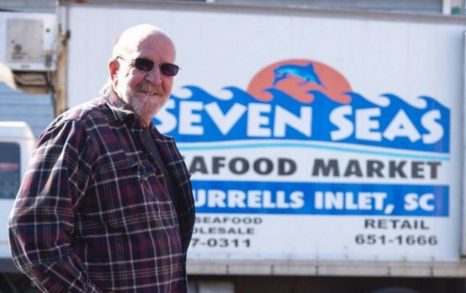
Murrells Inlet fishing community celebrates life of pioneer who passed unexpectedly
The fishing village of Murrells Inlet recently lost a true pioneer with the death of Phil Conklin, a fisherman extraordinaire and longtime owner of Seven Seas Seafood, located right on U.S. 17 Business in the inlet. Conklin passed away unexpectedly from natural causes on June 13 at the age of 71. Five days later a crowd of about 300 family and friends, including a who’s who in the Murrells Inlet fishing and restaurant industries, celebrated his life at Creek Ratz on the inlet’s Marshwalk. The Celebration of Life was indeed a party, complete with an open bar for attendees, per Phil Conklin’s request. His son, Chris Conklin, found a note hand-written by his dad among his closing documents that read “Don’t grieve, have a party. Bye.” >click to read<18:19






